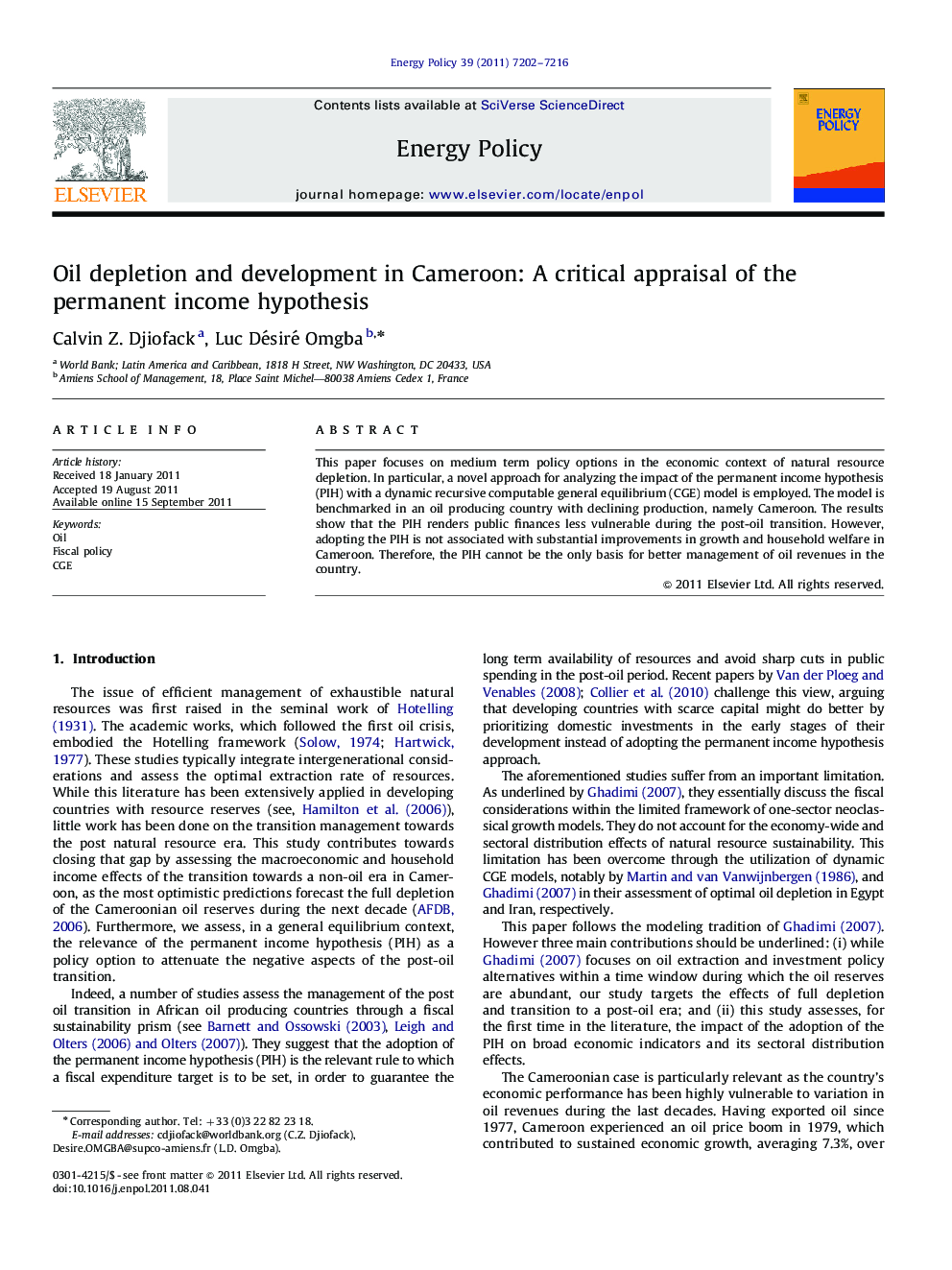| کد مقاله | کد نشریه | سال انتشار | مقاله انگلیسی | نسخه تمام متن |
|---|---|---|---|---|
| 993393 | 936033 | 2011 | 15 صفحه PDF | دانلود رایگان |

This paper focuses on medium term policy options in the economic context of natural resource depletion. In particular, a novel approach for analyzing the impact of the permanent income hypothesis (PIH) with a dynamic recursive computable general equilibrium (CGE) model is employed. The model is benchmarked in an oil producing country with declining production, namely Cameroon. The results show that the PIH renders public finances less vulnerable during the post-oil transition. However, adopting the PIH is not associated with substantial improvements in growth and household welfare in Cameroon. Therefore, the PIH cannot be the only basis for better management of oil revenues in the country.
► We assess for the first time, the adoption of permanent income hypothesis (PIH) in a dynamic CGE model.
► The model is benchmarked in an oil country with declining production, namely Cameroon.
► PIH renders public finances less vulnerable during the post-oil transition.
► However, adopting the PIH is not associated with significant improvement of the growth and households' welfare.
Journal: Energy Policy - Volume 39, Issue 11, November 2011, Pages 7202–7216